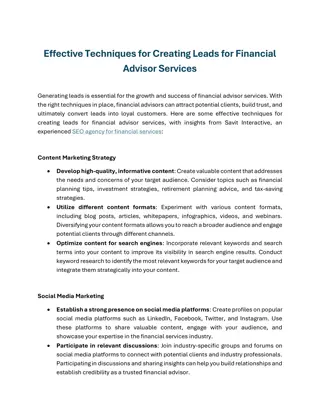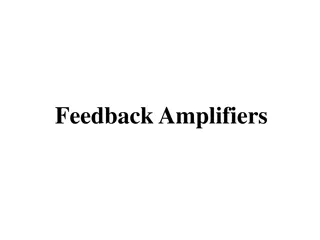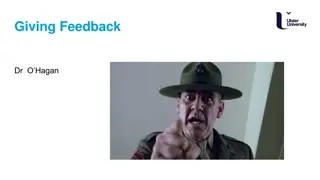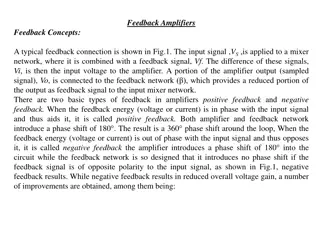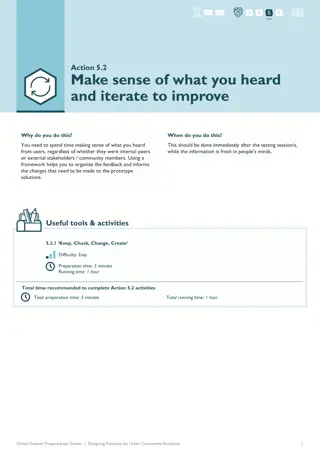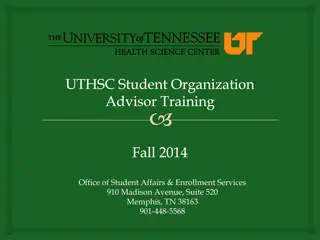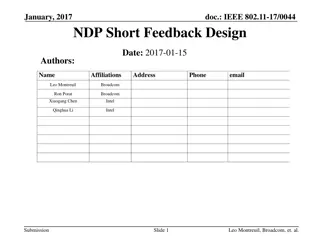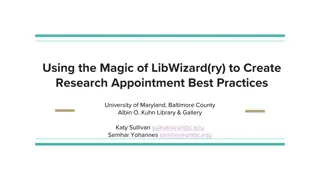
Effective Ways to Navigate Feedback in Academia
Discover the importance of feedback in academic writing. Learn about the various sources of feedback, its impact on students, and strategies to interpret and utilize feedback effectively. Navigate the complex landscape of feedback in academia to enhance your writing skills and academic success.
Download Presentation

Please find below an Image/Link to download the presentation.
The content on the website is provided AS IS for your information and personal use only. It may not be sold, licensed, or shared on other websites without obtaining consent from the author. If you encounter any issues during the download, it is possible that the publisher has removed the file from their server.
You are allowed to download the files provided on this website for personal or commercial use, subject to the condition that they are used lawfully. All files are the property of their respective owners.
The content on the website is provided AS IS for your information and personal use only. It may not be sold, licensed, or shared on other websites without obtaining consent from the author.
E N D
Presentation Transcript
In grad school... Their advisor, Their committee, Their editors, Students can receive feedback from Their colleagues, Us!
We know that feedback is helpful at all stages of the writing process
Most students receive feedback from faculty advisors and professors at just a couple of stages Feedback at the editing stage can be overwhelming because the work "should be done" When feedback is limited, it can become associated "with fear, frustration, and anxiety because of its close connection with individual identity and its potential for high stakes risks and rewards" (24)
Appreciation Feedback Forms Coaching Evaluation When students ask for feedback, they are usually looking for one of these types Confusion and frustration can occur when forms get crossed
Direct deletions/Insertions Sentence-Level Corrective Further Feedback Codes Directive Discipline-Specific Interactive Organization Within a document, feedback, faculty feedback may be one of these four styles Evaluative
Long Sustain of Positive Short Sustain of Positive Low risk, high reward "I love feedback" Low risk, low reward "No big deal either way" Quick Recovery from Negative High risk, high reward "I'm hopeful but fearful" High risk, low reward "I hate feedback" Slow Recovery from Negative Stone, D., & Heen, S. (2014). Thanks for the feedback: The science and art of receiving feedback well. Penguin Books.
What can we do? Ask questions We can help the student interpret the feedback in relation to their project! Provide clarity Offer encouragement
Ask Questions What conversations have you had with this person about this draft? You might get more context than the feedback is suggesting What stage in the process is this? What stage do you want to be in? Have the student help prioritize what is important What comments seem more important than others?
Some comments may be suggestions, and some might be absolutes (something "has to be" a certain way) Consider the stage of the writing and distinguish between structural concerns and surface-level concerns. If the advisor provided both summative comments and in- text comments, help the student navigate next steps. Provide Clarity
Most feedback leans towards the "negative" or "corrective": tell them what they're doing well! If a comment doesn't make sense in the context of the text, you can reassure the student Affirm that feedback can be difficult, and that it's normal to have feelings about it Offer Encouragement
Hello Dr. Darcy, Thank you for the feedback on my most recent draft. I appreciated your attention to X, and your thoughts on my methodolgy section. Before I begin revising, I did have a couple of clarifying questions about your comments on my analysis section On page 12 you say "xxxxx," but I was under the impression that I needed to save that clarification for my discussion section. Should I explain the data on page 12 and repeat that explanation later in my discussion? Follow-up Questions Thank you again for your time! Sincerely, Student If you and the student are still puzzled by the feedback or particular comments, you can also help the student frame their follow-up to the instructor.
Sample: Good afternoon Dr. X, I have finished my rough draft of Chapter 2, "Don't Shoot the Messenger, Please: Embodied Networks in Antony & Cleopatra." Right now, this chapter is structured around the ways that Cleopatra, Antony, and Caesar interact with Messenger figures in the play, and I've added the McLuhan section to provide a counterpoint to the Shakespeare scholars who are arguing that the "medium is the message." Those scholars seem to erase the agency of the Messengers when they implement McLuhan's theory, so I want to provide the original language in order to correct its usage. The thesis of this chapter, in its current form is: "In Antony & Cleopatra, Shakespeare builds a vast and complex network of minor characters who are simultaneously fighting for their function and for their lives." My questions for you are: 1. Does the thesis need an acknowledgement of the theoretical foundation I'm using (Latour/McLuhan)? 2. I'm examining all minor characters in this play through a "messenger" lens will I need to define the messenger function more fully? (page 5) 3. I've provided separate sections for Cleopatra, Antony's, and Caesar's analysis, respectively. Are they balanced? Should I cut or add to a section? Future Feedback This draft is still rough, so please ignore the grammatical errors I'll fix those as I revise. Thank you in advance for your insight! I know you are busy, but I would appreciate it if I could receive your written feedback by September 30th. While you're reading this chapter, I plan on drafting chapter 4, which will be the Coriolanus chapter. Hopefully, we can meet midsemester to evaluate my progress thus far. We can also help students make the most out of their advisor feedback in the future: ask specific questions! Sincerely, Samantha
Consider writing a process-oriented, not necessarily product- oriented, especially for developing graduate writers. Consider A Culture of Writing Value and promote Value and promote protected space and time to write. Display a willingness to share writing at any stage knowing it will be charitably assessed, not torn apart. Display Understand that every writer has different capabilities when it comes to production and quality. Understand Consciously choose to think about writing as a necessary aspect of graduate student professionalization that may or may not be enjoyable, but should not be fearsome, daunting, or debilitating. Choose Nurture a culture where seeking assistance and feedback is normal and aligns with best writing and mentoring practices. Nurture From the Purdue Writing Lab, "Working with Graduate Student Writers: Faculty Guide" Purdue Writing Lab, 2nd Ed. 2021 (25).
In practice... We can help graduate students interpret feedback as "skill training" and not "intellect insulting" We can encourage graduate students to ask for feedback earlier and more often We're less scary than their advisors! We can share our own experiences with feedback and acknowledge the emotional elements of it.
References Douglas Stone & Sheila Heen. Thanks for the Feedback. Penguin Books, 2015. Purdue Writing Lab. Working with Graduate Student Writers: Faculty Guide. Purdue Writing Lab, 2nd Ed. 2021.

